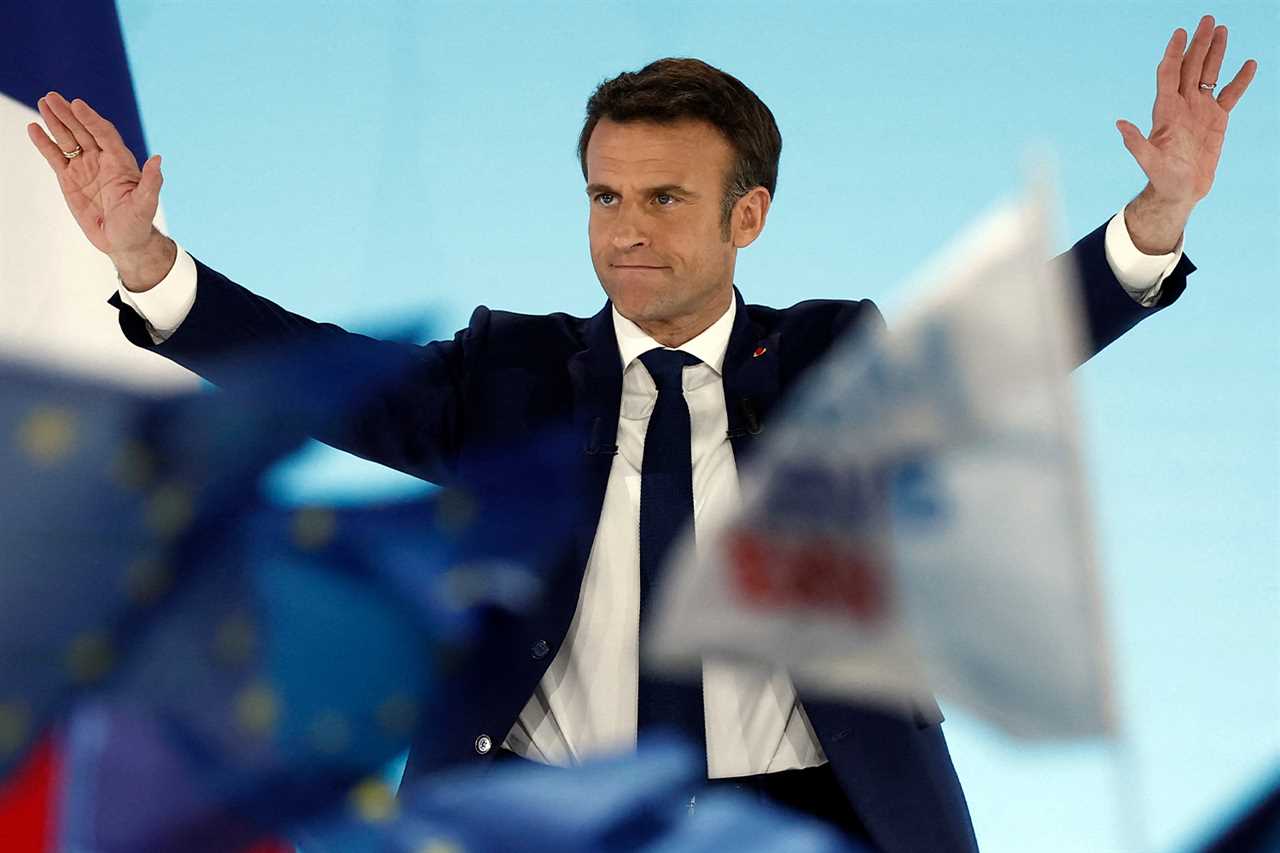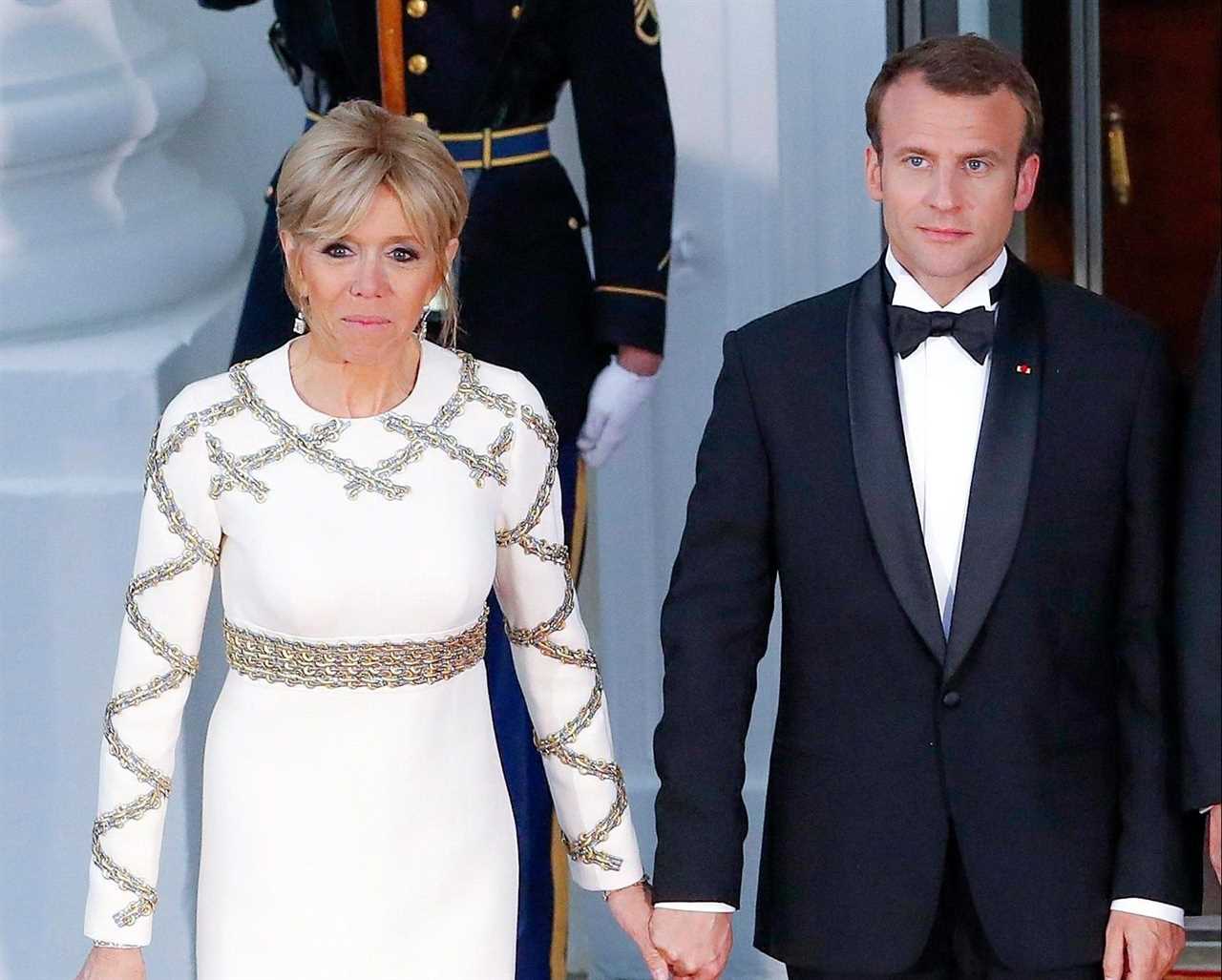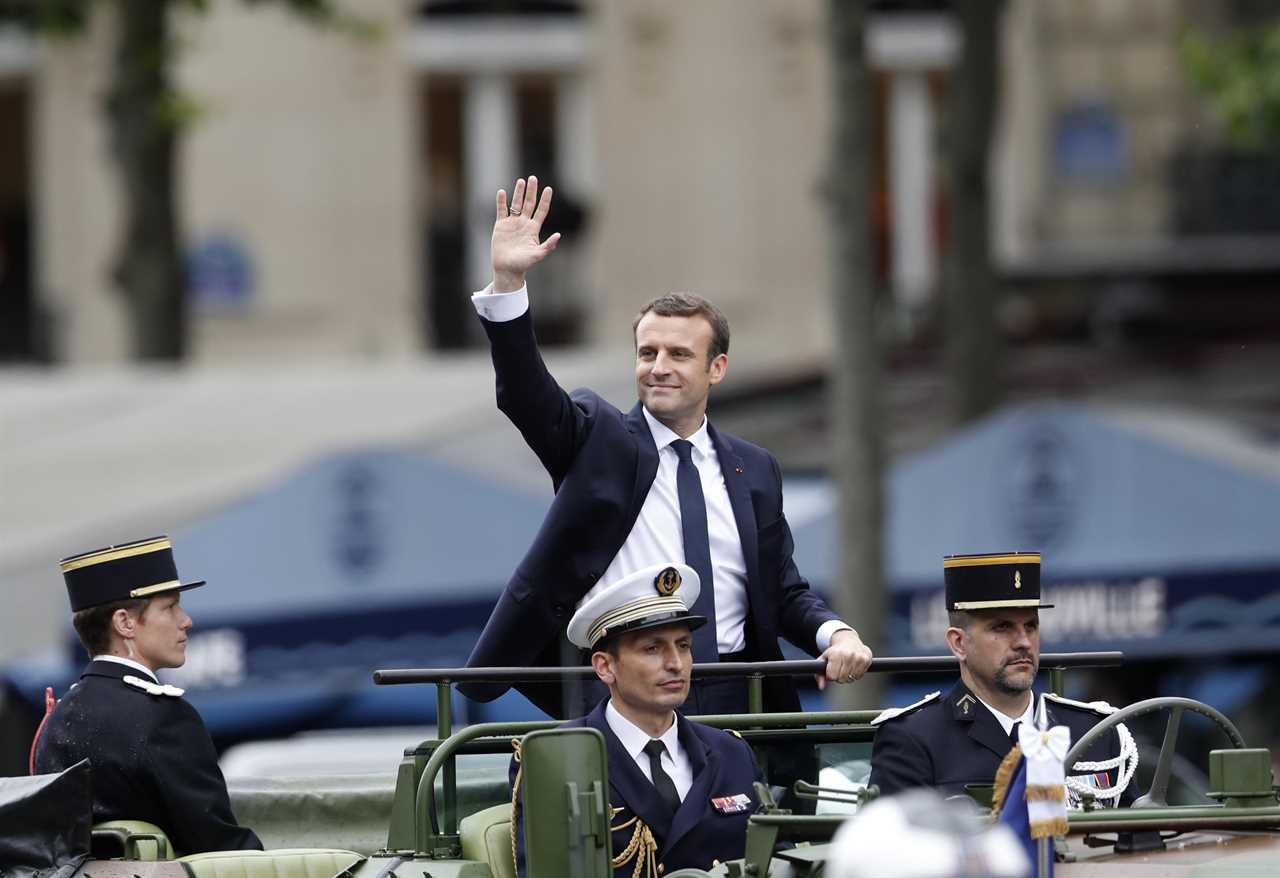EMMANUEL Macron won the 2017 French presidential election barely a year after he launched his political movement.
But who is the leader who famously married his former teacher, and whose rule has prompted the worst rioting in Paris for decades?

Who is Emmanuel Macron?
Emmanuel Macron, 44, won the 2017 French Presidential election for his centrist party La République En Marche! (On the Move) in May 2017.
He came to power at the age of 39, making him the youngest president in the history of France.
Macron used to be an investment banker and economy minister under the Socialist Party’s, François Hollande.
He was even dubbed the outgoing president’s political protégé, before he broke away and founded En Marche! in April 2016.
He has cast himself as a maverick outsider to the political system, but he was criticized for detailing very few policies during the campaign.
En Marche! quickly gained 200,000 members during its infancy.
At the age of 15, Macron’s parents, both doctors, sent him to Paris to finish high school in an attempt to break up a relationship with his teacher, Brigitte Trogneux – 24 years his senior.
Macron and Trogneux stayed together and have been married for nearly 15 years.
Who is the First Lady Brigitte Trogneux?
Brigitte Trogneux, 68, is the youngest of six children of Jean and his wife Simone.
The wealthy family owns a famous French chocolate-making empire.
In June 1974, Trogneux married the banker Andre-Louis Auziere and the couple had three children together.
Emmanuel Macron met his future wife when he was just 15.
When Macron hit the limelight, footage of him kissing his future wife on the cheek – when he was a teen and she was his married teacher 25 years his senior – emerged.
Macron shared a classroom at a Catholic school with Brigitte’s daughter Laurence – who is the same age as Macron.
In fact, Macron’s parents were stunned when they learned that Macron was romantically involved with his teacher as they believed their son was actually in love with Laurence, Reuters reported.
Writer Anne Fulda, who penned the book, Emmanuel Macron: A Perfect Young Man, spoke to the politician’s parents about the unconventional romance which happened while Brigitte was still married to the father of her three children.
His parents were shocked by the explosive revelation and removed their teen son from the school in Amiens, in northern France, and sent him to finish his education in Paris.

Macron’s mother told Fulda: “We couldn’t believe it.
“What is clear is that when Emmanuel met Brigitte we couldn’t just say: ‘That’s great.'”
She is quoted as telling Brigitte: “Don’t you see. You’ve had your life. But he won’t have children with you.”
But the woman who was to eventually become France’s next First Lady told Macron’s parents: “I cannot promise you anything,” when she was told to stay away from the teen, Reuters reported.
Brigitte last year confirmed to Paris Match magazine that Macron vowed to marry her when he was just 17-years-old.
In Fulda’s book, she is quoted as saying: “Nobody will ever know at what moment our story became a love story.
“That belongs to us. That is our secret.”
The president married his wife in 2007 after Brigitte’s previous marriage ended in divorce.
Macron is now the step-dad to his wife’s three adult children, including her son, Sebastien, who is two years older than Macron.
Daughter Tiphaine, 30, is a lawyer who works on her step-dad’s campaign.
Macron does not have any biological children with his wife, although he is also the step-grandfather of Brigitte’s seven grandchildren.
When did he found En Marche!?
En Marche! was founded on April 6, 2016, by Macron and means “Forward!” in English.
The president described his new party as a progressive movement aimed at uniting both left and right.
It is an avowedly pro-European organization that won an absolute majority in the national assembly following defections from other parties in France.
After Macron was elected president they changed the party to La République en Marche!
What were some of Emmanuel Macron’s policies in 2017?
Macron was frequently criticized for failing to provide detail about his policies.
The pro-EU candidate has repeatedly said he wants to create a new kind of politics without party structures, although how this would be done is unclear.
Among the policies, he detailed a €50bn investment plan for job training, a shift to renewable energy infrastructure and modernization.
He also pledged to cut corporation tax, reduce unemployment from 9.7 percent to 7 percent, and introduce local housing tax exemptions worth €10billion.
Macron has also proposed a ban on under 15s using phones in school, which was imposed in September 2018.
In June 2018, Macron announced plans to bring back compulsory national service for young people in France to “teach them discipline.”
All 16-year-olds would have to take part in some kind of civic duty by enrolling in the army, air force or navy.

How was Macron elected President of France in 2017?
Emmanuel Macron and anti-immigration leader Marine Le Pen began a final duel for the French Presidency on April 24, 2017, after the first round of voting knocked out the Republican and Socialist candidates.
The pair squared off in a TV debate just days before France headed to the voting booths, with a survey taken almost immediately afterward finding 63 percent of people found Macron was the most convincing, versus 34 percent for Le Pen.
Going into the final vote, pundits and pollsters expected a comfortable win for Macron, after an election campaign that left France bitterly divided.
When the results were announced, Macron emerged as the victor with 65.5% of the vote.
How did Macron’s party do in the 2017 parliamentary election?
Macron gained a huge majority in the French Parliament for En Marche! in June 2017.
Results from the first round of voting showed them winning 32.32 percent – a figure that translated to as many as 430 places in the 577 seat parliament.
This compares to 9.5 percent of the vote for the Socialist Party (PS), which had just spent the last five years running France, with Francois Hollande as President.
The result had huge implications for Brexit, placing Macron – who vowed to enforce a “hard Brexit” – and his party firmly in the country’s driving seat.
Among the first-round casualties on Sunday was Benoit Hamon, who was the PS candidate to replace Hollande.
Marine Le Pen’s far-right National Front thought they would emerge as the new parliamentary opposition, but polled just 13.2 percent.
Le Pen blamed a “catastrophic abstention rate”, which saw just over 50 percent take part in the election – the lowest figure in the history of the Fifth Republic.
Did you miss our previous article...
https://trendinginthenews.com/uk-politics/does-boris-johnson-speak-russian






